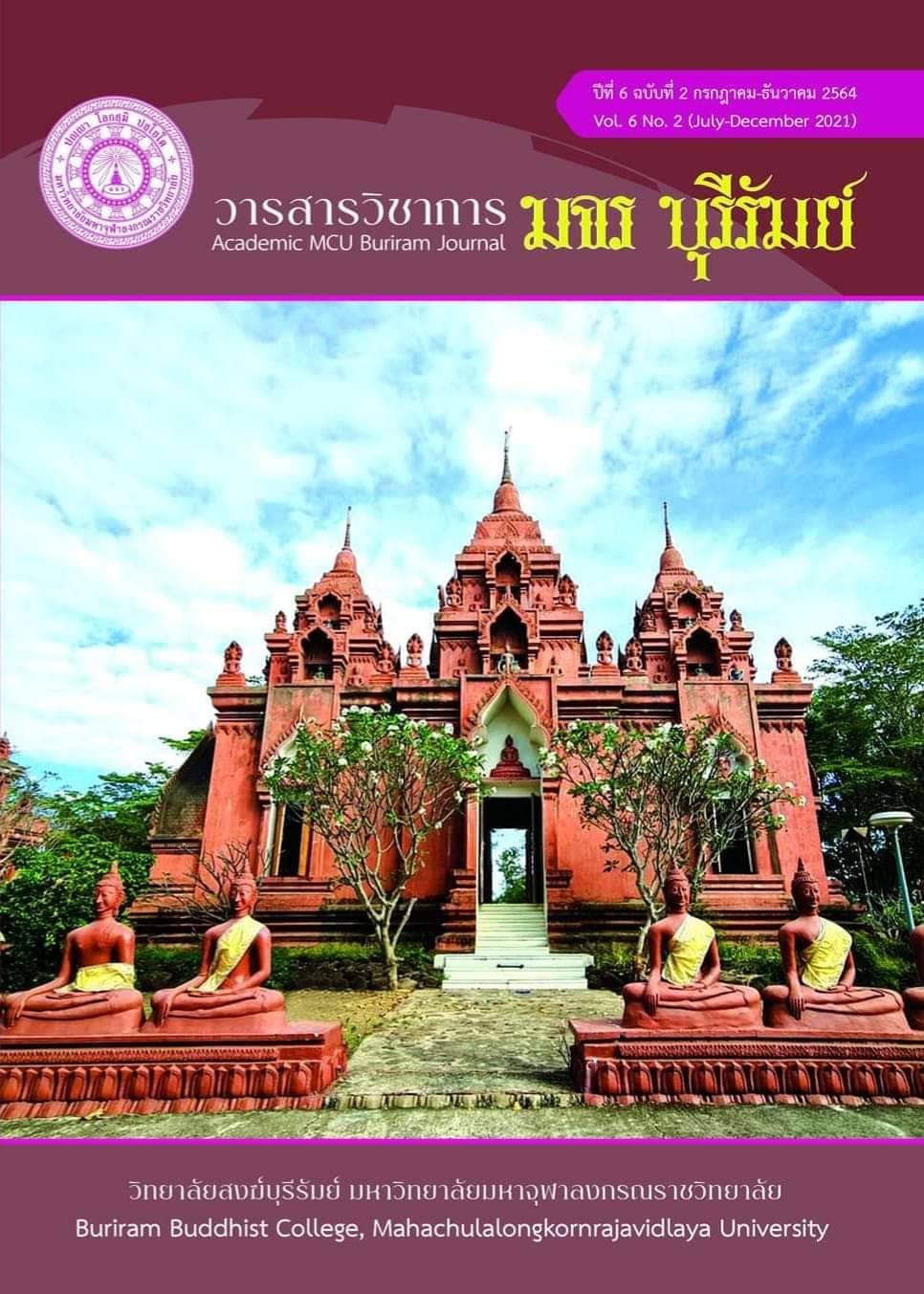The Development of Buddhist Learning Skill for Future of the Youth in Thai Society
Keywords:
Development, Learning Skills for the Future, Youth in Thai SocietyAbstract
The research plan on "Development of Learning Skill for Future according to Buddhism of the Youth in Thai Society" consists of 4 objectives as follows; 1) to analytical study of the philosophy and religion for learning in the 21st century, 2) to develop of knowing how to think according to Buddhism of the youth in Thai society, 3) to develop conscious of citizenship according to Buddhism in Thai society, and 4) to strengthen social responsibility according to Buddhism in Thai society. The mythology is presented into 3 stages: 1) document synthesis and interviews with related people. The informants were 15 experts, 2) creating patterns and verifying the suitability of patterns with techniques, group conversations and document verification by the experts, the informants are 200 youth representatives of learning network groups of 4 parts of Thailand, and 3) evaluating of development patterns of learning skills for the future, 50 informants from 4 parts of Thailand, analysis of contents, analysis of percentages, averages and standard deviations.
The results of the research found that:
1. The analytical study of philosophy and religion for learning in 21st century showed 4 points; idea of philosophy and religion on society, environment, economic and education. Those ideas and techniques could adopt for learning in the 21st century.
2. Development patterns of knowing how to think according to Buddhism of the youth in Thai society showed 2 points; Buddhist principle for knowing to think and factor of psychological know to think. Those ideas and techniques could adopt for Buddhist education.
3. Development conscious of citizenship according to Buddhism in Thai society showed 3 points; section on development conscious of citizenship, section on development conscious of legal citizenship and section on development conscious of citizenship according to Buddhism. Those ideas and techniques could adopt for developing conscious of citizenship.
4. Strengthening social responsibility according to Buddhism in Thai society showed 4 points; personal right on society, knowledge and skill for benefit of society, following rules and regulation of society and benefaction for society on spirit and emotion. Those ideas and techniques could strengthen for social responsibility.
References
จุฬากรณ์ มาเสถียรวงศ์. (2561). ความท้าทายของศตวรรษที่ 21 กับการเรียนรู้ยุคใหม่. จดหมายข่าวประชาคมวิจัย. ฉบับที่ 137 ปีที่ 23 เดือน มกราคม - กุมภาพันธ์.
นุชนาถ สอนส่ง. (2549). การพัฒนาชุดการเรียนรู้โดยใช้แผนผังมโนทัศน์เรื่องบรรยากาศ สำหรับนักเรียนชั้นมัธยมศึกษาปีที่ 1. ปริญญาศึกษาศาสตรมหาบัณฑิต. บัณฑิตวิทยาลัย: มหาวิทยาลัยศิลปากร.
วิจารณ์ พานิช. (2555). วิถีสร้างการเรียนรู้เพื่อศิษย์ในศตวรรษที่ 21. กรุงเทพมหานคร: มูลนิธิสดศรีสฤษดิ์วงศ์.
วิตติกา ทางชั้น. (2559). รูปแบบการจัดการเรียนการสอนในศตวรรษที่ 21 รายวิชาการจัดการงานแม่บ้านเพื่อพัฒนาทักษะการเรียนรู้ 5 ด้าน ตามกรอบมาตรฐานคุณวุฒิระดับอุดมศึกษา. งานวิจัย. อุบลราชธานี: มหาวิทยาลัยราชภัฏอุบลราชธานี.
สำนักงานเลขาธิการสภาการศึกษา. (2560). แผนการศึกษาแห่งชาติ พ.ศ. 2560 – 2574. กรุงเทพมหานคร: บริษัท พริกหวานกราฟฟิค จำกัด.
สำนักงานคณะกรรมการพัฒนาการเศรษฐกิจและสังคมแห่งชาติ. (2559). แผนพัฒนาเศรษฐกิจและสังคมแห่งชาติ ฉบับที่สิบสอง พ.ศ. 2560- 2564. สำนักงานคณะกรรมการพัฒนาการเศรษฐกิจและสังคมแห่งชาติ. สำนักนายกรัฐมนตรี.
Retrieved August 24, 2019. https://www.un.org/en/sections/issues-depth/ global-issues- overview/.
Retrieved October 3, 2019. https://www.vox.com/2019/9/17/20864740/greta-thunberg-youth -climate-strike-Fridays-future.
Retrieved August 24, 2019. https://theweek.com/articles/555371/why-religion-dominate-21st-century.
Retrieved August 24, 2019. https://bulletin.hds.harvard.edu/articles/summerautumn 2012/why-study-religion-twenty-first-century
Downloads
Published
How to Cite
Issue
Section
License
ทัศนะและความคิดเห็นที่ปรากฏในบทความวารสารฉบับนี้ถือเป็นความรับผิดชอบของผู้เขียนบทความนั้น ไม่ถือเป็นทัศนะและความรับผิดชอบของบรรณาธิการ





